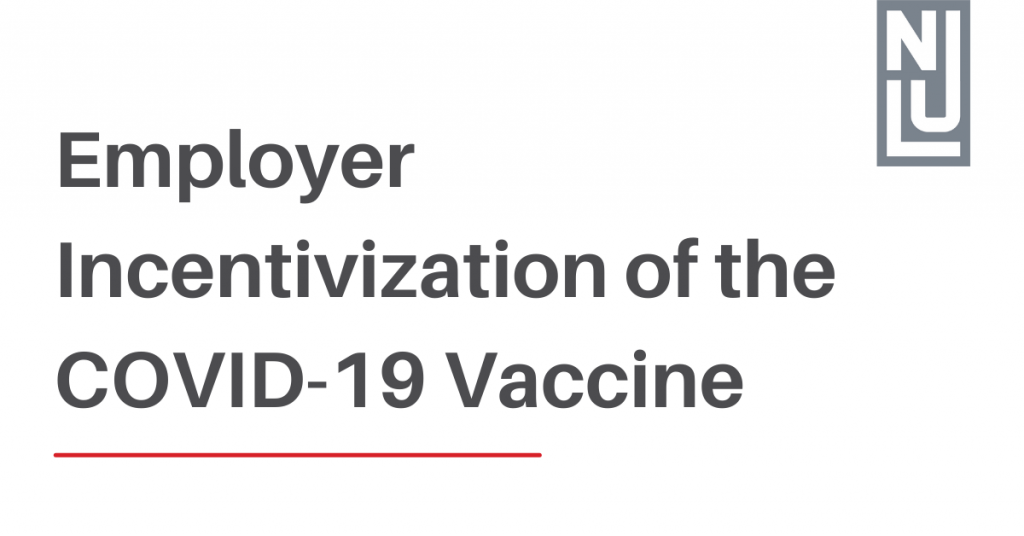
Posted January 19th, 2021 in Top Stories, Legal Insights with Tags COVID-19, COVID-19 for Employers
Employer Incentivization of COVID-19 Vaccination
Many employers are seeking ways to encourage their employees to get vaccinated for COVID-19. For those wishing to stop short of making it mandatory, incentivizing voluntary vaccination is an option, but one that comes with its own set of potential legal pitfalls employers should be aware of.
Last week, the Equal Employment Opportunity Commission (EEOC) proposed a new rule, replacing a previous final rule invalidated in federal court, which regulates how employers can use incentives to encourage employee participation in wellness programs that involve the disclosure of medical information. While COVID-19 and vaccination programs aren’t explicitly mentioned in the proposed rule change, it may have an impact on the approach employers choose to take.
Based on the newly proposed rule, which will be open for public comment until early March, employers should consider the following when developing plans to incentivize voluntary COVID-19 vaccination:
- Alternate options – Employees with certain disabilities may be unable or unwilling to receive the vaccine. Employers should ensure there is an alternate option for such employees to earn the same incentive available to similarly situated employees without a disability.
- “De minimis” incentives – From a legal standpoint, penalizing employees for non-participation in a wellness program or providing incentives to encourage participation may cause a program to be deemed coercive rather than voluntary, depending on the nature of the program and value of the incentive. Consider offering “de minimis” incentives for participation such as nominal gift cards or small branded items like water bottles.
- Group incentives – Rather than offering individualized incentives, employers could consider creating a company or department-wide goal and incentivizing all employees once it is reached, such as having 70% of employees receive the vaccine.
